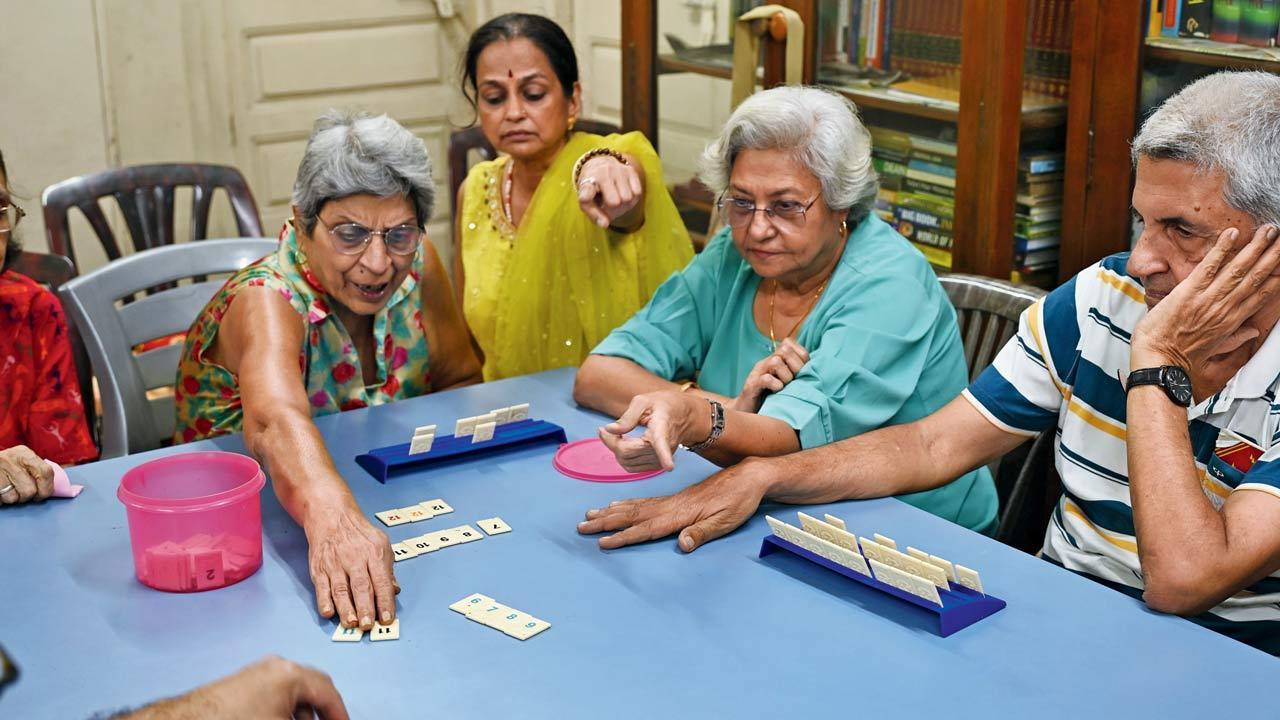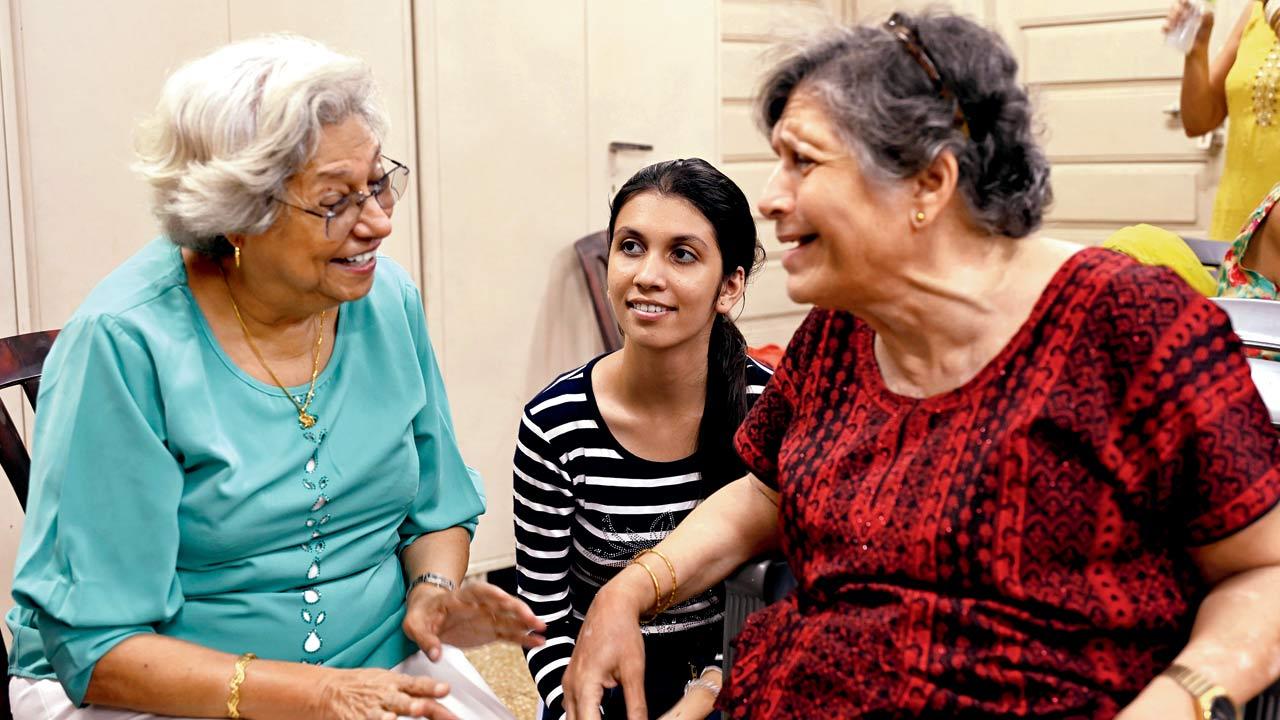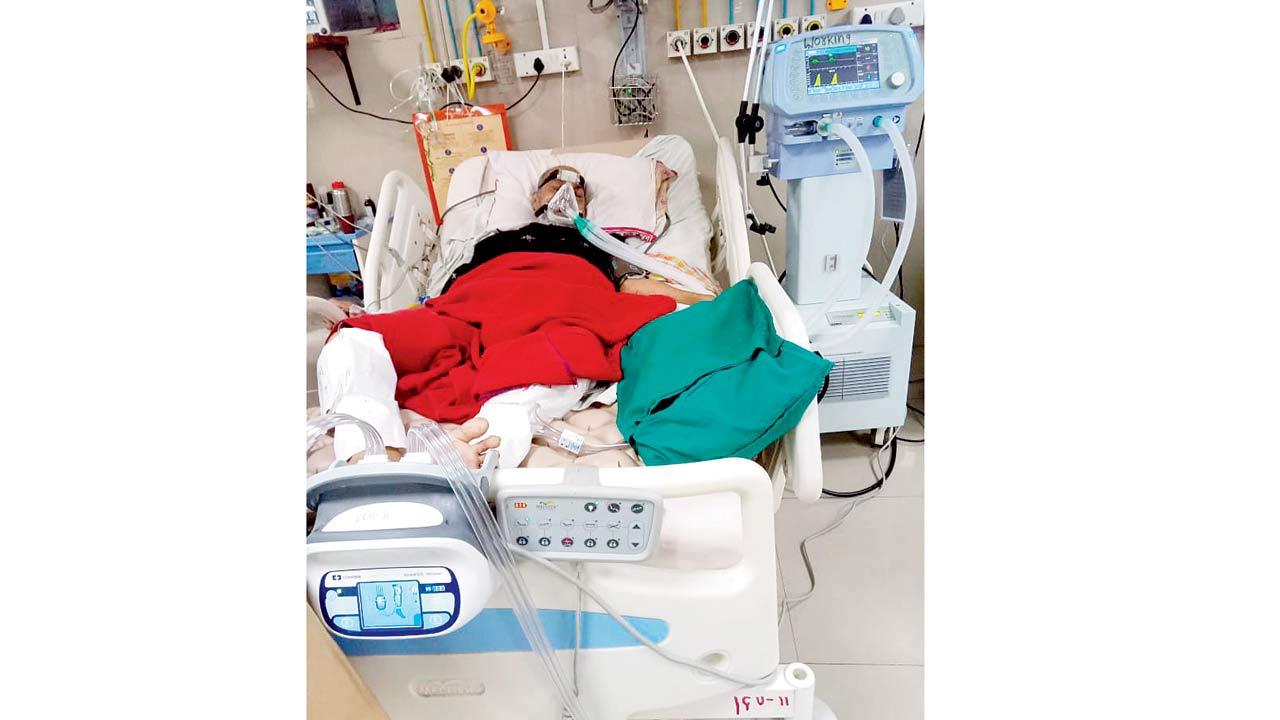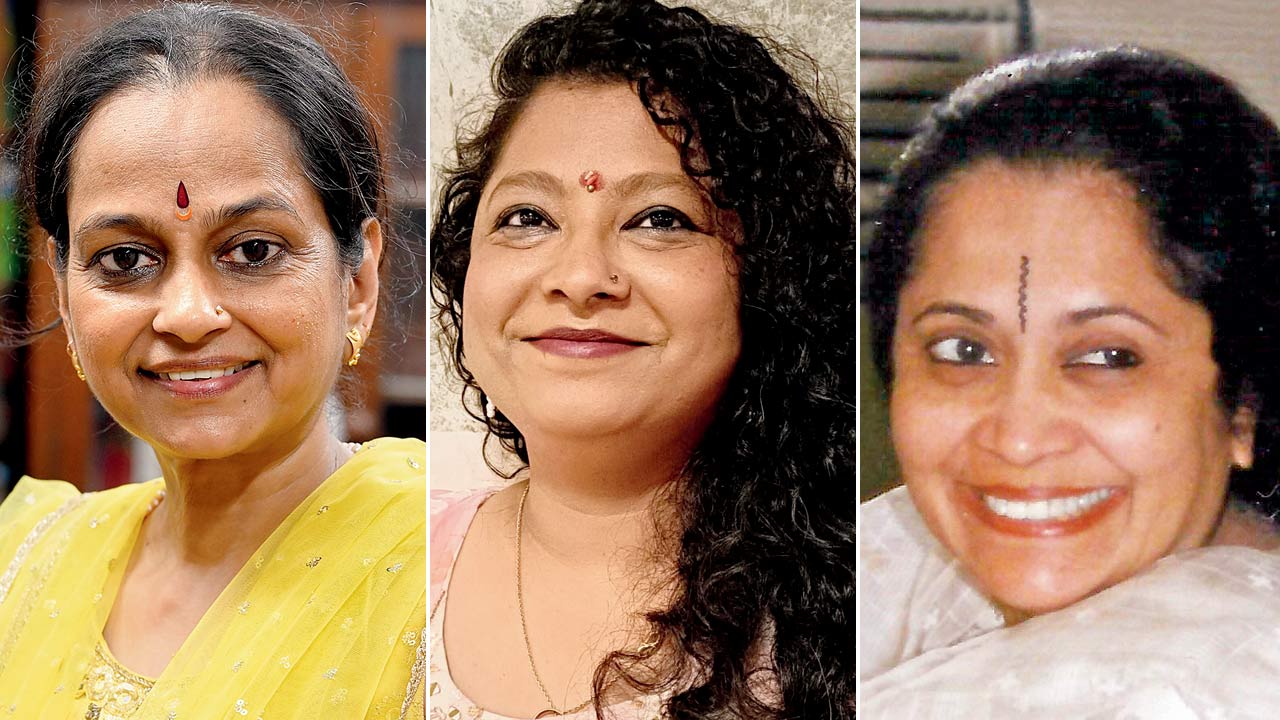In the age of the nuclear family, a growing number of senior citizens now live apart from their children. But do they have the right kind of support?

These daily meets are not only a physical check-in but a way to make sure mental health issues like depression do not go unchecked
Like so many Indians, Chandrakant Shinde, 78, and his wife Madhuri, 74, had a simple retirement plan. They were among the most “active” senior citizens in their neighbourhood in Mira Road, so they were perfectly content continuing to live there even after their son Dipak moved to Pen, Raigad district, in 2019 for his son’s education. Chandrakant’s daily one-hour walk and chats with other senior citizens in the colony ensured he was active and had an emotional support system.
ADVERTISEMENT
“All that changed six months ago when Baba suffered a stroke paralysis. The fact that he couldn’t move around was getting to him, which is why we hired a caretaker, Babula Nahak, from an agency that provides assistance for the elderly,” Dipak recalls.
 Seniors at Chai Masti Centre in Tardeo, run by the Dignity Foundation, meet up for cuppa every evening. Pics/Kirti Surve Parade
Seniors at Chai Masti Centre in Tardeo, run by the Dignity Foundation, meet up for cuppa every evening. Pics/Kirti Surve Parade
On the night of September 27, an inebriated Nahak assaulted a sleeping Chandrakant while his wife was out. Nahak is reported to have climbed up the slumbering septuagenarian and punched him continuously. Chandrakant died on October 19, succumbing to his extensive injuries after battling for his life for 23 days. “Aai is with me in Pen for now. She is completely traumatised,” Dipak tells Sunday mid-day, adding that Nahak is currently out on bail.
This is an all too real fear for many families in the city—and the country—where the elderly are left vulnerable due to poor retirement planning, whether this is because of a lack of awareness or the infrastructure required to help citizens plan for their golden years.
 Chandrakant Shinde succumbed to his injuries in October
Chandrakant Shinde succumbed to his injuries in October
According to the United Nations Population Fund’s (UNPF) India Ageing Report 2023, India is home to 14.9 crore people aged 60 years and above (as of July 2022), comprising around 10.5 per cent of the country’s population. By 2050, this number is set to double to 20.8 per cent, with 34.7 crore elderly folk. By the end of the century, the elderly will constitute over 36 per cent of the country’s population, predicts the report.
As retirement infrastructure grows to become the need of the hour, the central government, too, is mulling on reforms to push for accelerated growth in this sector.
 Suchitra Kamath; Meenakshi Bhanj Deo, mental health coach; Sheila Sreenivasan, founder, Dignity Foundation
Suchitra Kamath; Meenakshi Bhanj Deo, mental health coach; Sheila Sreenivasan, founder, Dignity Foundation
Driving change on this front are organisations like the Dignity Foundation, which is probably the largest senior care organisation in the country. Sheila Sreenivasan founded it in 1995 when she was the managing editor of the Tata Institute Social Sciences’ in-house magazine, The Indian Journal of Social Work.
It was a chance encounter with an elderly woman in Frankfurt that led to the birth of Dignity Foundation, says Sreenivasan. “A senior Indian woman on a wheelchair had been abandoned at Frankfurt airport and I happened to be taking a layover flight from there back to Mumbai. The airport authorities asked me to help because both of us were visibly Indian in our sarees—her’s was white [indicating widowhood],” recalls Sreenivasan, who is now close to 80 herself.
Despite some apprehension of missing her flight home, Sreenivasan accompanied the woman to a senior living facility 45 minutes away. What she witnessed there changed the trajectory of her life. “The senior home was so beautiful, it was huge and extremely well maintained with sprawling lawns. I understand that this was in Europe and that their standards are very high, but it made me realise the potential of what we could do for our seniors,” she says. And, boy, did she make it happen here too.
Dignity Lifestyle-Retirement Home Township in Neral is the result of that 45-minute drive in Frankfurt.
“We have over 200 residents, as well as a separate facility for those living with dementia,” says Sreenivasan.
Seniors are given flexible options like renting or buying flats or cottages according to their need. Registration for the residential programme involves a one-time charge, starting from R24 lakh. Of this, Rs 17 lakh is refundable upon surrender of the flat. Residents also have to make monthly payments of Rs 19,500 for expenses.
“There are a lot of [financial assistance] schemes that senior citizens can access. A few are run by private trusts such as the Ratan Tata and Azim Premji Trust, but there are also many schemes under the Ministry of Social Justice and Empowerment that many seniors do not know of. This lack of awareness results in them missing out on some relief they would have otherwise got,” says Sreenivasan.
“Many of those who do come to our facility are those who planned their retirement better than others. Some never had the resources to plan it in the first place, but there is a small section of seniors who are more proactive in choosing their retirement plan,” she adds.
Journalist Meenakshi Shedde’s mother who is now 97, was very proactive in her retirement planning, and began making enquiries about senior living facilities in the city as far back as 2018. “Amma (Indu Shedde), now 97, is fiercely independent, and the only reason I even found out about her decision early on to move [into the facility] is because the lawyer handling all the legal and financial matters called to inform me that I would have to sign her admission papers as her “notified person,” Shedde chuckles.
Of course, no amount of planning can account for unforeseen events like the facility shutting down. “The first place she picked was Sharan, in Vashi, but it shut down during the COVID-19 pandemic. She stayed with me for a year during the pandemic, and later, when my building underwent structural repairs, we found her a wonderful place in Panvel called Shantikunj Sevashram. Amma lives there in a large, airy, one-room cottage with a garden, which is more than enough for her. Hot meals are served, and no private kitchens are allowed,” says Shedde.
“My mother is extremely happy with her decision, and the place is more affordable than living at your own home, because it is subsidised, and they also take care of maintenance/repairs etc. She has a live-in caretaker woman, got through an agency the facility suggested. Even without these added services, a doctor checks in on the seniors every week, all year,” she adds.
An often neglected factor in retirement planning is accounting for emotional support systems and community engagement, especially with more and more elderly people living independently in nuclear families.
In a 2024 survey of Indians between 25-65 years conducted by Max Life Insurance to decode the retirement preparedness of urban citizens, 55 per cent respondents said they live in nuclear families.
In another study titled Loneliness in Older Indian Dyads, which was published in the International Journal of Environmental Research and Public Health, 20.5 per cent of adults aged 45 years and over reported moderate loneliness, while 13.3 per cent reported severe loneliness.
In a push to combat loneliness just like any other physical ailment, Dignity Foundation has opened senior citizen community centres, called Chai Masti Centre, at Vashi, Tardeo, Powai and Mahalaxmi. Anyone aged 58 and above can sign up for a membership to the centre, which is open from 10 am to 6 pm.
Suchitra Kamath, who manages the Chai Masti Centre at Tardeo, holds chai talks there every day between 4 pm and 7 pm. “The centre works as a physical register to determine if something is wrong with any of our members,” she says, “It is also a place where our members feel less lonely. Even if they merely come here and sit and not do much, they must do at least that because most of the seniors do not have anyone to speak to. Many seniors either live alone or their family members are very busy.” says Kamath.
Retirement can sometimes also trigger mental health issues among the elderly, triggering fears of advanced age and all the vulnerabilities it brings. A 2012 report,Status and requirements of geriatric mental health services in India, revealed that 1.7 crore older adults post 60 years of age, suffer from mental health problems in the country.
One of the recent tools in the armoury of mental health practitioners has been Cognitive Behaviour Therapy (CBT), which has especially proven useful for seniors. “CBT identifies your negative thoughts and then begins to ask open-ended questions with regards to those thoughts,” says mental health coach Meenakshi Bhanj Deo. “For example, a 65-year-old will be asked what their fears are about being that age. Whether it’s a dread of being completely immobile or something else, we get them to question if that fear holds ground,” she adds.
Deo believes that this therapy has helped seniors get comfortable with the idea of ageing. “They start focusing on opportunities that come with each stage of life. We ask them to keep a thought diary, to track what triggers these thoughts of being obsolete or weak, or not being in control,” she adds.
But the biggest hurdle still remains older generations’ resistance to seeking help with mental health. “It is very much a taboo,” agrees Deo, “Among many elderly people, mental health and therapy is still associated with ‘pagalpan’.”
Besides, for senior citizens who already fear of loss of autonomy, seeking help from someone really gets their goat, particularly if that person is an “outsider”, says the mental health expert, adding, “Many still feel that if they need to talk to someone, they would much rather do so with family.”
36%
of population estimated to comprise the elderly by 2100
10.5%
of India’s population is aged 60+* source: 2022 UNPF report
 Subscribe today by clicking the link and stay updated with the latest news!" Click here!
Subscribe today by clicking the link and stay updated with the latest news!" Click here!







